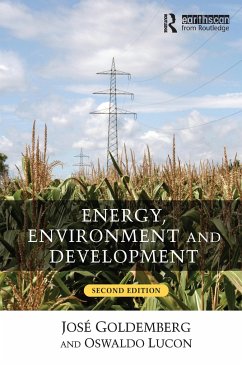
Green Keynesianism and the Global Financial Crisis
Versandkostenfrei!
Versandfertig in 1-2 Wochen
167,99 €
inkl. MwSt.
Weitere Ausgaben:

PAYBACK Punkte
84 °P sammeln!
This book examines the experience of Australia, Canada, Japan, Korea and the United States with Green Keynesian stimulus programs in the wake of the Global Financial Crisis (GFC). In addition to concrete policy advice, the book provides a broader vision for how governments could use Keynesian policies to work toward creating an 'ecological state'.














